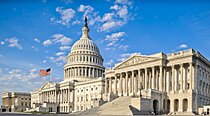Cato scholars examine federal, state, and local spending and tax issues from a limited government perspective. They explore the benefits of lower-rate tax systems, the distortions caused by government spending, and the dangers of rising debt. A guiding principle for budget policy is federalism, the idea that federal activities should be limited and that most government activities are better handled by the states.












